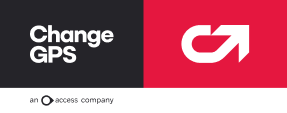Workpapers serve as the backbone of the year-end process. They consolidate data organisation, support compliance, and aid in financial decision-making.
The recent enthusiasm for AI has brought interest to workpaper automation, which can streamline the accounting process and is the final piece of the puzzle for pure cloud accountants. However, workpaper automation is not an instant win.
What is Workpaper Automation?
To clarify, workpaper automation is the ability to get a source document that’s already in the cloud and to easily ratify that closing balance number to an item going into your trial balance.
That document could be:
- A bank statement,
- An invoice,
- A rental statement,
- An annual performance report for a share portfolio, or
- Anything you need to complete the trial balance.
It can be found:
- Attached to the general ledger item in Xero,
- Indexed, or
- In a client’s share.
- It doesn’t matter where, as long as it’s already in the cloud.
It’s the foundation of what accounting actually is. It’s the assurance of what you put into those year-end accounts instead of just lodging whatever the client tells you to lodge.
Workpaper automation can increase the level of efficiency in your workflow caused by the reduction of staff and the increase in demands from clients. However, workpaper automation is a tool, and like all tools, it needs to be closely monitored to make sure it’s achieving your objectives.
The key objective with workpapers is quality, and automation doesn’t necessarily equal quality.
What’s Needed for Workpaper Quality?
Your workpapers need to be relevant for the work, current and most of all, being used consistently across the practice.
Are the Right Things Being Checked?
As a partner, you need to know your staff are checking the right thing, and as a staff member, you need to know what you’re expected to check. Your workpapers should supply this structure.
Are the Workpapers Current?
Your workpapers need to contain the most current advice relevant to your client.
For example, the clients you provided Section 100A advice to last year will need a different distribution strategy this year. What’s the firm’s process for getting this done? Do you have a current and relevant workpaper ready, as you can’t just roll over last year’s.
Are Your Checklists Relevant & Commercial?
Workpapers and checklists go side-by-side, and checklists are required to maintain some sort of quality control process.
There are a lot of different checklists out there, and many are largely irrelevant in their quest to be all-inclusive. This also makes them not commercially viable, as they can take so long to complete that they cost you money, as well as the time wasted making unnecessary checks.
Are Your Checklists Being Used?
Irrelevant checklists may also be ignored by staff, and this can lead to wider complacency regarding the use of checklists.
How to Ensure Workpaper Quality?
Standardising the use of workpapers ensures workpaper quality throughout your practice and reduces the risk.
It increases quality control, which is mandatory for all firms in public practice as set by APES 320.
You will also need to ensure they’re updated and maintained to remain relevant.
Maintaining control around the workpaper quality can be difficult, especially for small firms. That’s why ChangeGPS contains workpapers designed to get all the information you need simply and thoroughly as possible. The workpapers include job-specific checklists and so much more.
To learn more about ChangeGPS workpapers, check out this webinar: https://events.changegps.com.au/changegps/ChangeGPS-Tools-to-Streamline-your-Year-End
Recent
Resources
Trust Distribution Hub
Your Trust Distribution process should start by reviewing the deed to determine whether an update...
Tax Planning Hub
A strong Tax Planning strategy allows you to take your clients beyond just tax reduction...
Accountant’s Foundation: Professional Firm Profit (PFP)
PCG 2021/4 is a practical compliance guideline regarding the allocation of profits from professional firms,...




